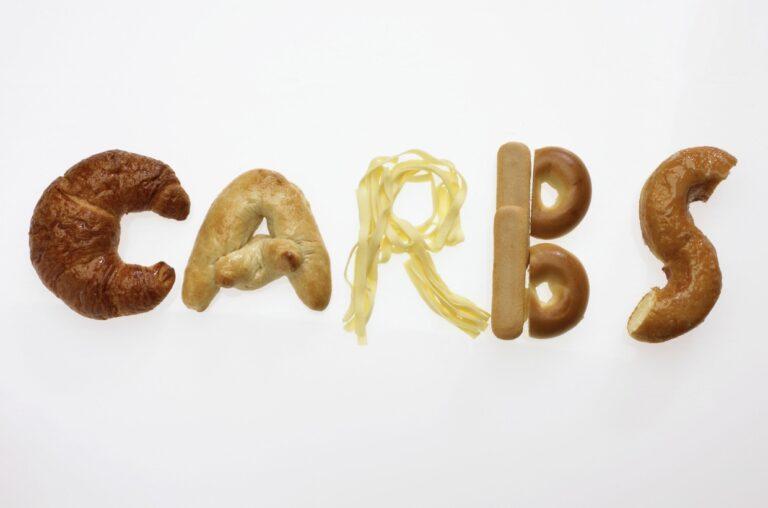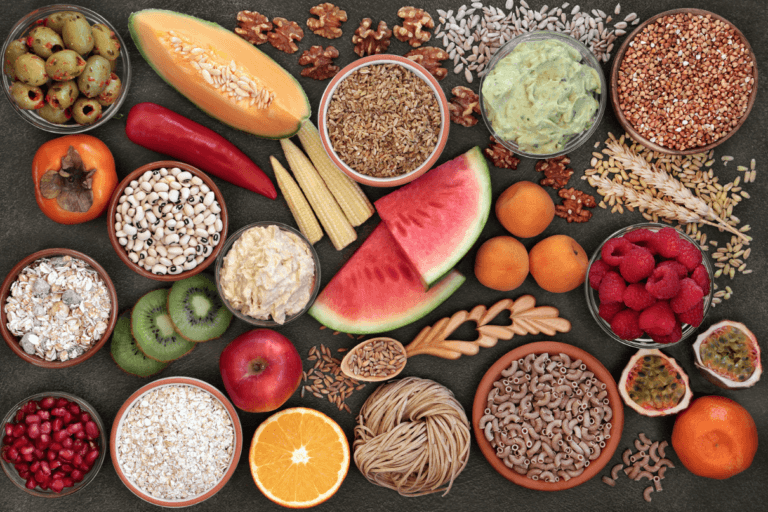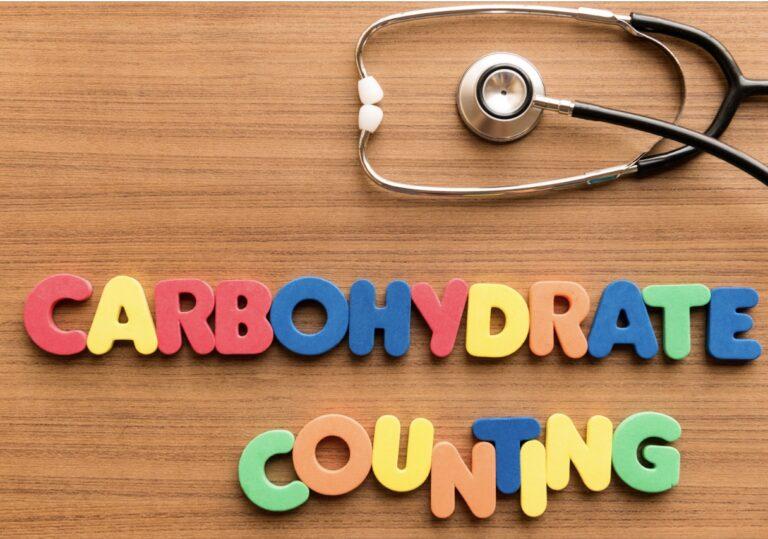
There is a lot of debate surrounding carbs these days. Some people say that they are the root of all evil regarding weight loss, while others claim that they are an essential part of a healthy diet. So, what’s the truth? More importantly, how can you reduce your intake of unhealthy carbs without compromising your health? Here are some tips for doing just that.
What are carbohydrates?
Carbohydrates are one of the three main macronutrients (along with protein and fat), they are an essential part of a healthy diet. Carbohydrates are found in a variety of foods, including bread, pasta, rice, fruits and vegetables. They can also be found in processed foods such as candy and cookies. The body breaks down carbohydrates into sugar, which is then used for energy. There are two main types of carbohydrates: simple and complex.
Simple carbohydrates are made up of one or two sugar molecules and are found in foods such as white bread and fruit juice. Complex carbohydrates are made up of three or more sugar molecules found in foods such as whole grains and pasta. Both simple and complex carbohydrates provide the body with energy, but complex carbs tend to be a more slowly-digested source of energy. This means that they can help to keep you feeling fuller for longer. For this reason it’s important to choose complex carbs over refined carbs whenever possible. When it comes to weight loss however, all carbs should be consumed in moderation.
Our bodies break down carbohydrates into glucose, which is then used for energy. If we consume more carbohydrates than our bodies need, the excess glucose is stored as glycogen or converted into fat. Therefore, it’s important to maintain a healthy balance of carbohydrates in our diets. Too few carbohydrates can lead to fatigue, while too many can contribute to weight gain.
Why are carbohydrates essential in our diet?
Carbs are an important part of your diet for several reasons:
- They are the body’s primary source of energy. When you eat carbs, your body breaks them down into glucose, which is then used by the cells for energy
- Carbs help to regulate blood sugar levels. After eating a meal high in carbs, your blood sugar levels will rise. However, over time, the body will release insulin, which helps to bring the blood sugar levels back down to normal
- Carbs play an important role in digestion. They help to bulk up stool and make it easier to pass through the intestine
- Carbs are necessary for the absorption of certain vitamins and minerals. For example, Vitamins A, D, E and K are fat soluble, meaning that they can only be absorbed if there is fat present in the intestines. However, carbs help to increase the amount of bile in the intestine, which helps to break down fats and allows for the absorption of these essential nutrients
What is a low-carbohydrate diet?
A low-carb diet is a diet that limits carbohydrate intake, typically by avoiding foods such as bread, pasta and rice. Low-carb diets are often high in protein and fat, which can help to keep you feeling full and satisfied. Studies show that low-carb diets can lead to loss of weight and improved health markers, such as lower blood sugar levels and reduced inflammation. There are many different types of low-carb diets, the specific approach that you take will depend on your individual goals and preferences. A strict low-carb diet is often called a keto diet or ketogenic diet consuming around 20 grams of carbs per day, while others may be able to eat up to 100 grams. However, all low-carb diets share the common goal of reducing carbohydrate intake to achieve health benefits and lose weight.
Why might you follow a low-carb diet?
A low-carb diet is a diet that restricts carbohydrates, such as those found in sugary foods, pasta and bread. It is typically high in protein and fat and is often used to treat conditions such as obesity and type 2 diabetes.
There are several reasons why someone might follow a low-carb diet:
- A low-carb diet can help to promote weight loss by reducing the number of calories that are consumed
- It can also help to control blood sugar levels, which is important for people with type 2 diabetes
- A low-carb diet can help to increase levels of HDL cholesterol, which is considered to be the “good” type of cholesterol
- A low-carb diet may also reduce the risk of developing heart disease
While there are many benefits to cutting carbs, it is important to speak with a doctor or registered dietitian or nutritionist before making any major changes to your diet. They can help you to put together a food plan with fewer carbs but still keep a balanced diet to remain healthy. They can also discuss the side effects of a low-carb diet with you.
How to create a low-carb meal plan?
When it comes to following a low-carb diet, meal planning can be key to success. By taking the time to plan, you can create delicious and nutritious meals that fit within your carb intake. Here are a few tips to get started.
First, take inventory of your kitchen and pantry. Stock up on low-carb staples like protein-rich meats, healthy fats, and green vegetables. These items will form the foundation of your meals. While there are many different ways to create a low-carb meal plan, there are a few basic principles that you should keep in mind. First, focus on incorporating more protein-rich foods into your diet. This could include lean meats, fish, nuts and seeds. You should also make sure to have plenty of healthy fats, such as avocados, olive oil and coconut oil. Finally, don’t forget to load up on low-carb vegetables. These include leafy greens, brussels sprouts, broccoli and cauliflower. Then, make a list of easy-to-prepare recipes that you can rotate throughout the week.
There are many great low-carb cookbooks available or you can find recipes online. Finally, don’t be afraid to get creative in the kitchen. Experiment with different ingredients and flavours to find what you enjoy most. With a little effort, you can easily create a delicious and nutritious low-carb meal plan that fits your lifestyle.
How do carbohydrates affect a person with diabetes?
For people with type 2 diabetes, carbohydrates can majorly impact blood sugar levels. When carbohydrates are digested, they are broken down into glucose, which is absorbed into the bloodstream. This increase in blood sugar levels can then trigger a release of insulin from the pancreas. Insulin helps move glucose from the bloodstream into the cells, which are used for energy. However, if someone has diabetes, their body either does not produce enough insulin or is unable to use it effectively. As a result, glucose builds up in the bloodstream and can lead to serious health complications. Therefore, it is important for people with diabetes to carefully monitor their amount of carbs.
People with diabetes should see a diabetes care and education specialist for diabetes before changing their diet.
Tips for cutting down on high-carb foods
Reducing your carbohydrate intake can be challenging, but a few simple strategies can help. First, take a close look at your diet and identify foods that are high in carbohydrates and try some of these tips:
- Increase vegetable intake by swapping starchy vegetables like corn, white potatoes and sweet potatoes for broccoli, kale, cauliflower, peppers and mushrooms. Cauliflower can also be used as a low-carb swap for rice and even pizza dough. Courgettes (zucchini) can be shredded to replace pasta in dishes
- Swap simple carbs like white bread for complex carbs found mostly in whole foods like whole wheat bread or multigrain bread. Simple carbs are often high in empty calories and low in essential nutrients. Complex carbohydrates are slowly metabolised and provide lasting energy
- Swap white rice for brown rice or quinoa
- Swap sugary breakfast cereals for barley, bran cereal or oatmeal
- Consume high-protein foods. High protein foods such as chicken, turkey, fish, greek yoghurt and eggs have been shown to increase satiety which helps you feel full for longer
- Consume more healthy fats. Nuts, seeds, avocado and olive oil are good sources
- Choose foods that are high in fibre. They will minimise carb cravings and help you feel fuller for longer. Fibre helps to slow down the digestion of carbohydrates, keeping blood sugar levels steady and preventing spikes in insulin levels. Foods that are high in fibre include legumes, nuts, seeds and many types of fruits and vegetables
- Choose low-carb snacks in between meals. Hard-boiled eggs, almonds, beef jerky, cottage cheese, celery veggie sticks with peanut butter, pickled cucumber and greek yoghurt topped with blueberries
- Swap sugary beverages such as energy drinks, fruit juices, milkshakes, full-fat cola and fizzy drinks for water, herbal teas and sparkling water. Try to limit artificial sweeteners too, because their sweetness makes you crave sugar even more
- Drinking sparkling water can help promote the feeling of fullness and satiety, reducing overeating
Finally, be mindful of portion sizes. It is easy to overeat even healthy foods if you do not pay attention to how much you are consuming. By eating smaller meals and snacks throughout the day, you can help control your carb intake and avoid overeating.
How to cut carbs from the diet when eating out
First, take a close look at the menu before you get there and identify any low-carb options. One simple way to reduce the carb content of your restaurant meals is to ask for sauce on the side. That way, you can control how much you’re eating. Another tip is to watch out for hidden carbs. For example, many restaurants use breading on their chicken or fish, which adds carbs. If you’re not sure whether a food has been breaded, ask your server. You can ask for your sandwich without the bun or for your pasta dish to be made with veggie noodles instead of regular pasta. You can also try to make healthier choices when ordering sides. For example, choose a salad instead of fries, or vegetables instead of rice. By making smart choices, you can enjoy restaurant meals without overdoing it on the carbs.
Seek advice
If you’re considering following a low-carb diet, it’s important to speak with your doctor first to make sure it’s the right choice for you. Additionally, be sure to monitor your carb intake carefully and eat plenty of other nutrient-rich foods to ensure you’re getting all the nutrients your body needs.
Sources
Medical Disclaimer
NowPatient has taken all reasonable steps to ensure that all material is factually accurate, complete, and current. However, the knowledge and experience of a qualified healthcare professional should always be sought after instead of using the information on this page. Before taking any drug, you should always speak to your doctor or another qualified healthcare provider.
The information provided here about medications is subject to change and is not meant to include all uses, precautions, warnings, directions, drug interactions, allergic reactions, or negative effects. The absence of warnings or other information for a particular medication does not imply that the medication or medication combination is appropriate for all patients or for all possible purposes.









